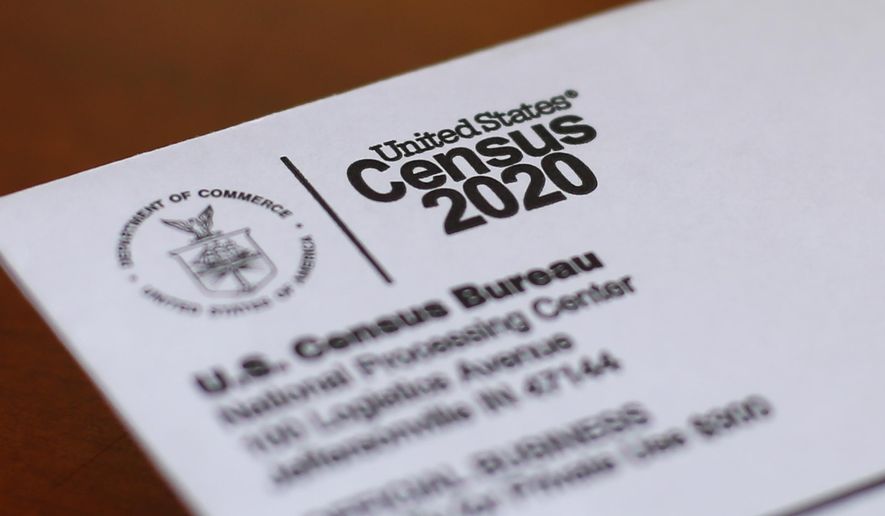The U.S. Census Bureau says the data irregularities that are putting in jeopardy a year-end deadline for turning in numbers used for divvying up congressional seats affect only a tiny percentage of the records and are being resolved as quickly as possible.
The statistical agency’s statement was issued as the House Committee on Oversight and Reform held a hearing Thursday on the data abnormalities, which likely will force a delay in when the Census Bureau turns in the apportionment numbers, to several weeks past a Dec. 31 deadline.
The timeline remains in flux for turning in the apportionment numbers used for deciding how many congressional seats and Electoral College votes each state gets in future elections, the Census Bureau said in a statement late Wednesday.
“These kinds of anomalies and issues are expected and are similar to the Census Bureau’s experience in prior decennial censuses,” the bureau said. “What is certain is that the Census Bureau is working to thoroughly correct and address all issues and anomalies as a part of its mission to deliver accurate 2020 Census data products as close to the statutory deadline as possible.”
Members of the House committee led by U.S. Rep. Carolyn Maloney, a New York Democrat, said the Trump administration has blocked the release of documents they requested about the data anomalies. The committee members threatened to issue a subpoena if the documents aren’t produced.
“The Trump administration seems to believe they owe Congress nothing. No documents, whatsoever,” Maloney said during Thursday’s virtual hearing.
The House committee was nevertheless able to obtain three new internal agency documents, and they show that the Bureau plans to deliver the apportionment numbers to the president no earlier than Jan. 23, which would be after President Donald Trump leaves office and President-elect Joe Biden takes office. The documents also show that the anomalies impact hundreds of thousands of records, according to the committee.
Missing the Dec. 31 deadline for turning in the apportionment numbers would be a blow to Trump’s unprecedented efforts to exclude people in the country illegally from being counted in the numbers, which are also used to determine how $1.5 trillion in federal spending is distributed.
The U.S. Supreme Court heard arguments this week about Trump’s order to exclude people living in the country illegally from the apportionment count. Federal courts in California, Maryland and New York have ruled that Trump’s plan is unlawful, while a fourth court in the District of Columbia said a challenge was premature.
U.S. Rep. James Comer, the ranking Republican on the House Committee on Oversight and Reform, called Thursday’s hearing a partisan attack to undermine confidence in the 2020 census.
___
Follow Mike Schneider on Twitter at https://twitter.com/MikeSchneiderAP




Please read our comment policy before commenting.